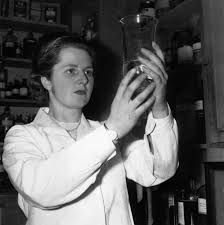As a kid, I did impersonations of her, sitting in the back of my mother’s VW Beetle, leaning in between the seats. I lived in the increasingly post-industrial north of England and her voice was so ‘other’ that I couldn’t give a jot what she actually stood for. Of course I was too young to understand either the politics of Margaret Thatcher or the quintessentially British neurosis behind her forced upper class accent.
With the benefit of 30 years of hindsight, I have no great issue with the economics of Thatcher. The reason that so many people on all sides of the political divide find it hard to criticise her is that, more than anything, she delivered a mortal blow to many vested interest groups. In the Britain of the late 1970s, her time had come.
In the end, however, Margaret Thatcher’s legacy is a shallow one. She did very little to challenge the dreary class basis of British society (far less, indeed, than her grotesque parody and successor, Tony Blair). She understood nothing about Europe and fingered liberal post-war Germany as a proto-fascist state. As a result, while she arrested the immediate economic decline of Britain, she presided over its continued intellectual demise, a trajectory that finds Britain today to be a very marginal society — far, far less than the sum of its individuals.
The United States had its Thatcher in Reagan. But since then it has produced Obama. We, meanwhile, gaze upon Cameron and Osborne, waiting forlornly for the thinking man’s Margaret to appear.
More:
Martin Wolf quick-ish wrap on her economics (FT sub needed)
Confirm the shallowness of Ken Baker by reading this (FT sub needed)
Ditto Niall “Harvard” Ferguson here (FT sub needed)
Guardian doesn’t seem to have anything interesting at a quick glance.
Across the pond, similar drivel from the NYT.
Bloomberg gets the point by focusing more acutely and has a good headline. But it ain’t philosophy.
As good as it gets, and nowhere near as good as his biography of her, by Hugo Young, from 2003 before he died.
Next day:
Perhaps time is improving the copy. Ian McEwan captures Thatcher quite well.
And AC Grayling does at least as well in the New York Times.
